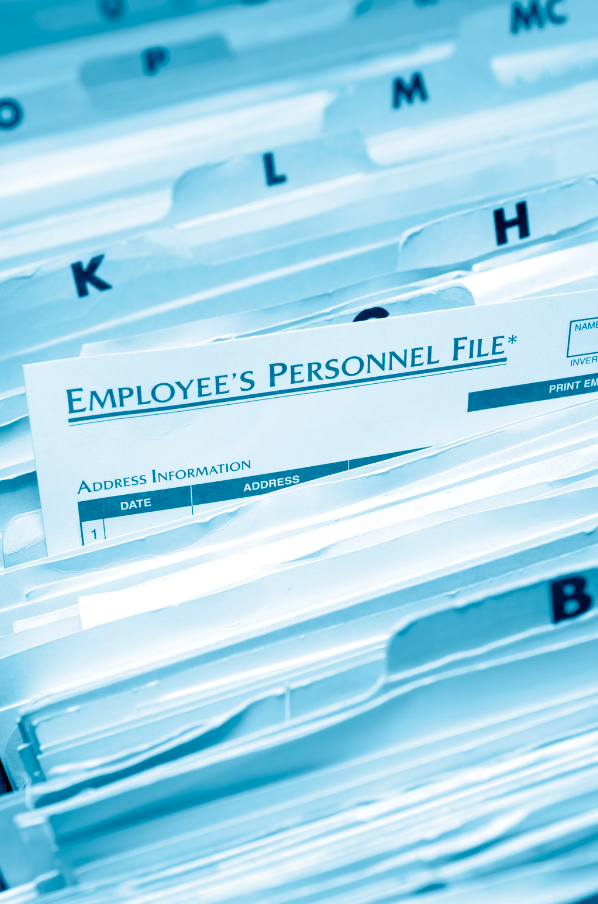The Clean Record Provision is Not Always So Clean
 By Dan Gephart, April 15, 2024
By Dan Gephart, April 15, 2024
If you’re thinking of using a clean record provision to settle a potentially expensive and litigious employment law situation, you’re not alone. But while clean record agreements are a popular alternative disciplinary tool, they are not without their own set of problems.
For the uninitiated, a typical clean record provision is a term in a settlement agreement in which the agency agrees to change, remove, or withhold potential negative information about the employee’s performance or conduct, while the employee agrees to drop employment-related claims against the agency.
Sixteen months into his term, President Trump released a flurry of executive orders (EOs) impacting the Federal workplace, including one that effectively banned the use of CRAs. Those actions were overturned when President Biden issued an EO rescinding them.
Meanwhile, OPM, who had developed and implemented regulations to comply with President Trump’s EOs, had to re-develop and implement updated regulations. At the time, OPM guidance said agencies were permitted to implement a clean record agreement with an employee, even though the regulations prohibited such an action. Many FELTG readers told us judges were not keen on that approach. Fortunately, OPM regs now match President Biden’s EO. We again have consistency.
The return of CRAs seems like an obvious win-win. Agencies save the time and money of litigating a case, while avoiding the impact languishing cases tend to have on agency credibility and supervisor morale.
Meanwhile, the agreements give employees the opportunity to apply for future positions without any stains on their Federal personnel records.
Or do they?
In its 2013 report Clean Record Settlement Agreements and the Law, the MSPB stated: “Several of the appellant attorneys we spoke with indicated that the primary reason why appellants seek clean records is to aid them in their efforts to obtain another Federal position.”
And, as you know as a federal employee, there is paperwork that goes along with securing a federal job. (I’m looking at you OF-306!). And you sure as heck better not lie on those reports lest you find yourself even less Federally employable.
Honesty isn’t a one-sided coin when it comes to CRAs. Agencies are required to be truthful, especially when talking to Federal investigators in connection with background investigations. We explained as much in a somewhat-recent Ask FELTG article. This requirement to be truthful also applies to suitability determinations and other inquiries related to vetting for personnel security.
But wait, there’s more. Other reasons a CRA may not be the best option include:
- An appellant does not need show actual harm, such as a failure to obtain a position or other form of monetary loss, in order to establish that a clean record (nondisclosure) provision has been materially breached. Cardoza v. DOJ, 53 MSPR 264 (1992).
- A clean record provision implies a confidentiality clause when one is not present. In Torres v. DHS, 110 MSPR 482 (2009), the agency agreed to replace the removal SF-50 with a resignation SF-50. However, several former coworkers told a private company that the employee resigned in lieu of removal.
- CRA compliance is not easy to police, especially as time wears on.
More than half of the settlements before the MSPB involve CRAs. Here are some of the issues to consider when determining whether to go the CRA route:
- What items will be removed from a record?
- What systems of records will be cleaned?
- What obligations does an agency have to support the record in communications with others?
- Who is bound by the commitments?
- Details on references.
- How things outside the agreement can affect the ability of parties to meet their obligations.
This is not to say that CRA can’t be an effective time and money-saving tool. As is the case with other alternative discipline strategies, there are great advantages. You just have to do your homework before you jump in. The best way to do that is to join FELTG President Deborah J. Hopkins on May 21 at 1pm ET for Clean Records, Last Rites, Last Chances, and Other Discipline Alternatives. Gephart@FELTG.com

